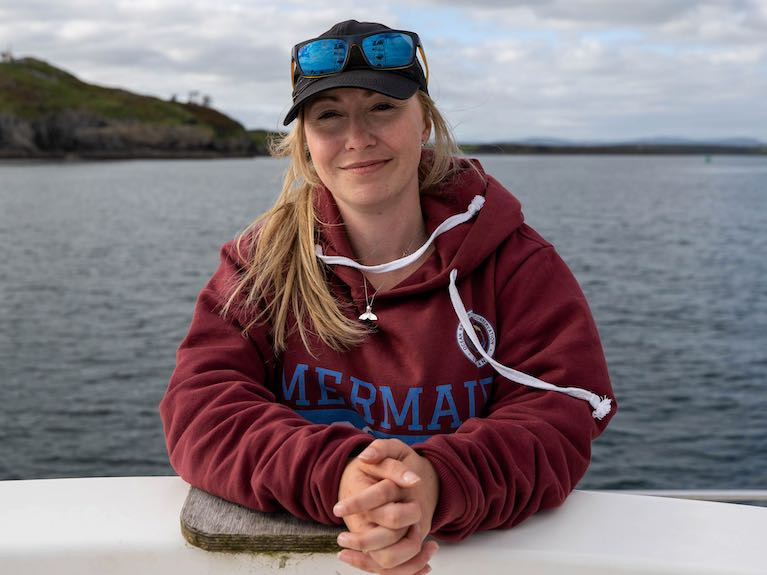The waters off the south coast of Ireland have been selected as the study location for Ireland’s first real-time acoustic monitoring project of large whales, with the aim to relay warning alerts to maritime traffic to reduce the risk of disturbance and ship strikes.
The Automated Cetacean Acoustics Project (ACAP) is being undertaken by Ocean Research & Conservation Ireland, a “for-impact” non-profit organisation based in Cork, in partnership with the Rainforest Connection and supported by Huawei Ireland.
Huawei Ireland is providing a research grant with technological support through its global TECH4ALL initiative. TECH4ALL is Huawei’s digital inclusion initiative, using technology, applications and skills to empower people and organisations everywhere.
90% of Ireland’s international trade travels by sea, with the South Coast of Ireland one of the busiest heavy ship shipping lanes in the world. Thousands of large container ships pass through it from Eastern Canada to Liverpool and other European ports annually, as well as additional pleasure boats, speed crafts and eco-tour operators.
The South Coast is also an important foraging, resting and reproductive habitat for 25 cetacean species (whales, dolphins and porpoise) and particularly for large Humpback, Fin and Minke whales. Heavy ship traffic places whales at an increased risk of ship strikes causing injury or even death, and also raises the ambient noise pollution affecting all the species present.
The new study will see the deployment of acoustic monitoring equipment in the Celtic Sea at locations where sightings of whales and other wildlife have been recorded. The equipment will be able to listen for movements of whales, and with the help of machine learning models to enhance data analysis, for the first time provide near real-time detection. This will provide multiple benefits - helping with the identifying and classification of species in Irish waters, their distribution and behaviour, and most importantly, the development of an early warning system that will enable ships to reduce their speed in time to lessen the considerable risk of ship strikes.
The project will see Ireland leading the way in the advancement of policy and programmes that respect and protect marine wildlife informed by near real-time data available for the first time, with the help of Rainforest Connection and Huawei Ireland. Not only will the detections be able to help inform policy and decision-makers in the establishment and management of potential marine protected areas (MPA’s), they will also be used for education and made available to the wider public to hear the symphony of cetacean sounds.
Commenting, lead researcher Emer Keaveney, Marine Mammal Ecologist, Ocean Research & Conservation Ireland said: “Recent advances in technology provide increasing opportunity to use these innovations for good and to enhance our understanding of the natural world. This is such an exciting time as now we have a chance to peer inside the secret world of whales in Irish waters, and directly improve their welfare and conservation”.
“We are a voluntary organisation that relies heavily on third party and private assistance, so we are delighted to have this opportunity to work with Huawei Ireland.”
Emer Keaveney will discuss the project via livestream as part of the annual Huawei Connect summit, which takes place in Shanghai and online between 23rd - 26th September. Emer Keaveney is the only Irish speaker at the summit, which focuses on AI, 5G and digital innovation.
Commenting on the announcement, Tony Yangxu, CEO Huawei Ireland said: “Huawei has been a trusted partner for over 16 years in Ireland, and we are excited to be supporting Ocean Conservation & Research Ireland as our very first fully funded TECH4ALL initiative in Ireland.”
“Huawei believes that no one should be left behind in the digital world and we have made it our mission to put digital inclusion front and centre of our business. Our TECH4ALL programme centers on developing digital inclusion and empowerment initiatives with measureable outcomes. One of its many purposes is to help accelerate the UN’s SDGs and we hope that this project with ORC Ireland can contribute to that.”
































































